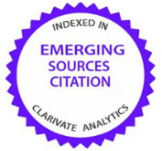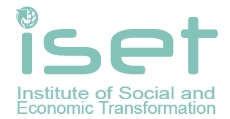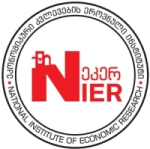Career management of special people needs in the labour market
Abstract
Introduction. The paper reviews the literature on characteristics of labour market and its effect on career of people with special needs. While independent career guidance and management remains difficult for people with special needs, because of the rapid changes in the modern labour market, the evidence shows that their career remains a challenge mostly because of the way they are viewed – they are often viewed through their deficits, disabilities, and illnesses.
Aim and tasks. The purpose of this paper is to suggest a new, inclusive perspective in career counselling of persons with special needs and their careers. By abandoning the medical paradigm in career of people with special needs, we focus on advantage competences model and self-determination.
Results. It is shown that today’s labour market has become unstable and unpredictable, which can be proven by an increased development of atypical ways of employment. The changes in today’s labour market have also affected the careers of people with special needs, who are additionally faced with possible illnesses, disorders, and other barriers. Therefore, we may expect that they may require more help from career advisers and different approaches in counselling. In addition, characteristics of today’s labour market suggest that we must focus on different career understanding – not as a guidance, as it cannot be further predicted, but as management, to become our own life/career agent. It should not be any different in people with special needs.
The area of employing people with special needs has not yet abandon the medical paradigm, which is a barrier for their career management. Thus the new inclusive approach has been developed – an advantage competence model. In the model competences of people with special needs, there are a basis for career interventions, for finding a prospective area of career, where they are more likely to succeed. The model supports self-determination, which is recognized as a way of improving one’s self-esteem, a positive career identity, autonomy, maintain or improve quality of life and person’s active participation.
Conclusions. Although the guidance and management of career is a challenge nowadays, it should be viewed as a positive challenge, which can nurture and develop our curiosity, flexibility, optimism, and gaining knowledge. The growing needs for labour market knowledge urge people to constantly gain competences, therefore, they can become managers of their own careers. Nevertheless, this process of career management should not be any different with people with special needs. By using advantages competence model, we rely on strengths every person has and builds on the potential of their independent career managing.
References
2. Drobnic, J. (2018). Careers and people with disabilities. Koper: University of Primorska Publishing House.
3. Drobnic, J. (2000). The labor market in the processes of globalization - challenges for people with disabilities. In K. Destovnik, & J. Ulaga, eds., Social care for the education, education and social care of people with disabilities - ten years later: Proceedings. Ljubljana: Slovenian Society of Defectologists, 599–601.
4. Poglajen, Č., Kostevc, Č., Dernovšček Hafner, N., & Kovač, B. (2018). Punctuality and social insecurity: interdisciplinary views on precariat. Ljubljana: University of Ljubljana, Faculty of Economics.
5. Drobnic, J. (2014). Development of a model of vocational guidance for people with disabilities. University of Primorska, Faculty of Education Koper: doctoral thesis. Doctoral dissertation.
6. Savickas, M. L. (2015). Life-Design Counseling Manual. Retrieved from: https://dwd.wisconsin.gov/youthapprenticeship/pdf/2017_forum/eidsmoe/manual_LifeDesignCounseling.pdf.
7. Chen, S. P., & Mykletun, J. R. (2015). Beyond Post-Downsizing Organizational Injustice and Counterproductive Work Behaviors: Antecedents and Consequences of Learnt Helplessness. International Journal of Business and Management, 10 (6). Retrieved from: http://citeseerx.ist.psu.edu/viewdoc/download?doi=10.1.1.1009.4149&rep=rep1&type=pdf.
8. Patton, W., & McMahon, M. (2014). Career Development and Systems Theory. Connecting Theory and Practice. Rotterdam: Sense Publishers.
9. Super, D. (1990). A life-span, life-space approach to career development. In D. Brown, & L. Brooks, eds., Career choice and development. San Francisco: JosseyBass, 121–178.
10. Marsh, H. W., Pekrun, R., Parker, P. D., Murayama, K., Guo, J., Dicke, T., & Arens, A. K. (2019). The murky distinction between self-concept and self-efficacy: a beware of lurking jingle-jangle fallacies. Journal of Educational Psychology, 111 (2), 331–353.
11. Kobal Grum, D. (2000). Basic aspects of self-image. Ljubljana: Pedagogical Institute.
12. Musek, J. (2004). Psychological and cognitive studies of personality. Ljubljana: Scientific Institute of the Faculty of Arts, University of Ljubljana.
13. Beheshtifar M., & Zohre R. N. (2012). Role of Self-Concept in organizations. European Journal of Economics, Finance and Administrative Sciences, 44, 159–164.
14. Gardner, D., Van Dyne, L., & Pierce, J. (2004). The effects of pay level on organization-based self-esteem and performance: A field study. Journal of Occupational and Organizational Psychology, 77, 307–322.
15. Brecelj, V., Vidmar, G., & Boštjančič, E. (2014). Career planning for disabled people - desires and obstacles. Andragogical Cognition, 20 (4), 49–61.
16. Drobnic, J., & Zagorc, S. (2017). Planning, monitoring, evaluation and management of active measures in the labor market. Podgorica: Pedagogical Center of Montenegro.
17. Brown, D. (2004). Career choice and development. San Francisco: Jossey-Bass.
18. Drobnic, J. (2017). The model of career guidance for persons with special needs. Saarbrücken: Lap Lambert Academic Publishing.
19. Shogren, A. K., Wehmeyer, L. M. Palmer, S. B., Forber-Pratt, A. J., Little, T. J., & Lopez, S. (2015). In S. H. Zucker, eds., Education and Training in Autism and Developmental Disabilities. The Journal of Decision on Autism and Developmental Disabilities, The Council for Exceptional Children, 50 (3), 251-263.
20. Brown, S. D., & Lent, R. W. (2005). Career Development and Counseling. Putting Theory and Research to Work. New Jersey: John Wiley & Sons, Inc.
21. Amundson, N. (2009). Active engagement. The Being and Doing of Career Counseling. Richmond: Ergon Comunication.
22. Nota, L., Ferrari, L., Soresi, S., & Wehmeyer, M. (2007). Self-determination, social abilities and the quality of life of people with intellectual disability. Journal of Intellectual Disability Research, 51 (2), 850-865.
23. Watts, G. (2006). Career development learning and employability. Heslington: The Higher Education Academy.
24. Hagner, D., & Dileo, D. (1993). Working together: Workplace culture, supported employment, and persons with disabilities. Cambridge, MA, US: Brookline Books.
25. Bennie, G. (1996). Supported employment and disabled people in New Zealand: From assimilation to transformation. A thesis presented in partial fulfillment of the requirements for the degree of Doctor of Philosophy. Wellington: Massey University.
26. Krumboltz, J. (2008). A social learning theory of career counseling. Stanford, CA: Stanford University Press.
27. Koval, V., Polyezhayev, Y., & Bezkhlibna, A. (2019). Communicative competences in enhancing of regional competitiveness in the labour market. Baltic Journal of Economic Studies, 4(5), 105-113. doi:10.30525/2256-0742/2018-4-5-105-113.
28. Savickas, M. L. (2012). Life design: A paradigm for career intervention in the 21st century. Journal of Counseling & Development, 90 (1), 13-19.

This work is licensed under a Creative Commons Attribution-NonCommercial 4.0 International License.
If the article is accepted for publication in the journal «Economics. Ecology. Socium» the author must sign an agreementon transfer of copyright. The agreement is sent to the postal (original) or e-mail address (scanned copy) of the journal editions.






















